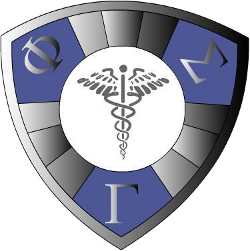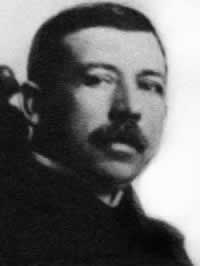
William Makepeace Thackeray was an English novelist, author and illustrator, who was born in India. He is known for his satirical works, particularly his 1848 novel Vanity Fair, a panoramic portrait of British society, and the 1844 novel The Luck of Barry Lyndon, which was adapted for a 1975 film by Stanley Kubrick.

Bernhard "Bernd" Becher, and Hilla Becher, née Wobeser, were German conceptual artists and photographers working as a collaborative duo. They are best known for their extensive series of photographic images, or typologies, of industrial buildings and structures, often organised in grids. As the founders of what has come to be known as the ‘Becher school’ or the ‘Düsseldorf School’ they influenced generations of documentary photographers and artists. They have been awarded the Erasmus Prize and the Hasselblad Award.

Aintree Racecourse is a racecourse in Aintree, Metropolitan Borough of Sefton, Merseyside, England, bordering the city of Liverpool. The racecourse is best known for annually holding the world-famous Grand National steeplechase.
Gateways is an international organization whose self-declared mission is it to "raise Jewish consciousness."

Ginsu is a brand of direct marketed knives, owned by Scott Fetzer Company, a Berkshire Hathaway Company, that was made popular in the United States by being sold on television using infomercials characterized by hawker and hard sell pitch techniques. The ads fueled sales of between two and three million Ginsu sets between 1978 and 1984.

Ambrose Godfrey-Hanckwitz FRS, also known as Gottfried Hankwitz, also written Hanckewitz, or Ambrose Godfrey as he preferred to be known, was a German-born British phosphorus manufacturer and apothecary. He was one of the first phosphorus manufacturers and was one of the best and most successful in his time. He invented and patented a machine that acted as a fire extinguisher.
Becher is a surname. Notable people with the surname include:
The Wrixon-Becher Baronetcy, of Ballygiblin in the County of Cork, is a title in the Baronetage of the United Kingdom. It was created on 30 September 1831 for William Wrixon-Becher, Member of Parliament for Mallow from 1818 to 1826. Born George Wrixon, he assumed by Royal licence his mother's maiden surname of Becher in 1831. The Becher family were major landowners in County Cork.
Martin William Becher was a former soldier and steeplechase jockey in whose memory the Becher's Brook obstacle at Aintree Racecourse is named.

Charles John Ellicott (1819–1905) was a distinguished English Christian theologian, academic and churchman. He briefly served as Dean of Exeter, then Bishop of the united see of Gloucester and Bristol.
Colonel Thomas Be(e)cher JP was an Irish politician and soldier. The family's surname varies in its spelling, caused by its pronunciation.

Rear Admiral Otto Humphrey Becher, & Bar was a senior officer in the Royal Australian Navy (RAN). Born in Harvey, Western Australia, Becher entered the Royal Australian Naval College in 1922. After graduating in 1926, he was posted to a series of staff and training positions prior to specialising in gunnery.
Walter Becher was a German Bohemian politician, representative of the All-German Bloc/League of Expellees and Deprived of Rights (GB/BHE), All German Party (GDP) and the Christian Social Union of Bavaria.

Phi Sigma Gamma (ΦΣΓ) (PSG) is an American men's osteopathic medical fraternity. The fraternity was established in Chicago, Illinois by a merger between two previously existing osteopathic fraternities, Phi Sigma Beta and Phi Omicron Gamma, each of which had three chapters at the time. The date of the merger has been reported both as 1915 and as April 1916. A seventh chapter was added to the original six in 1917.

John Martin Poyer was the twelfth Naval Governor of American Samoa, from March 1, 1915 to June 10, 1919. He held the longest term of any American governor appointed over the territory by the United States Government. A Naval Academy graduate, Poyer served in numerous positions and retired in 1906 on account of failing health; however, the navy recalled him to service in 1915 to serve as governor. During the 1918 flu pandemic, Poyer quarantined the territory to stop the spread of the pandemic to American Samoa. Because of his actions, no deaths occurred in American Samoa, and he received the Navy Cross. Upon his final retirement, Poyer had reached the rank of commander.
John C. Becher was an American stage and television actor. He made his professional debut in 1946 at the McCarter Theatre.

The Boston Weekly Messenger (1811–1861) was a newspaper in Boston, Massachusetts, in the 19th century. Publishers/editors included James Cutler and Nathan Hale. It began as "a political journal, established in 1811 by a company of young federalists, chief among whom was John Lowell." It consisted "largely of current news taken from the Boston Daily Advertiser;" the two papers shared an office at no.6 Congress Street.
John Augustus Becher was an American businessman and politician.
John Richard Hedges Becher was an Anglican Archdeacon in Ireland in the first half of the twentieth century.









